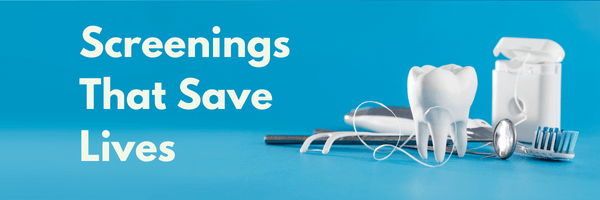
HIPAA and Dental Records: What Do You Need to Know?
Posted November 08, 2019
Many healthcare professionals forget about the sensitive nature of dental records when it comes to cybersecurity breaches, privacy, and confidentiality. Patient profiles in dental offices contain many of the elements of private health information that are governed by federal law. If you are applying for an administrative or medical records position in the dentistry field, you must be familiar with HIPAA security guidelines before you schedule your first dental office staff interview. Understanding the importance of privacy and confidentiality will come in handy when you’re chatting with the hiring manager and in your future role.
Most dental offices are not part of large networks. This self-contained model limits the amount of information dental administrative staff are sending from one location to another. However, anytime you send claims, check insurance eligibility, or gather updates on the status of a bill, you need to be sure you are following best practices. Here are the essentials you need to know about HIPAA and dental records.
Understanding Health Informatics in Dentistry
Did you know that health informatics is the unique development of health applications made with technology? Anyone who accesses medical records needs to understand the critical nature of their job. You handle protected health information each time you enter a patient’s data into the billing system or review their patient profile. This data is governed by a law commonly known as HIPAA, and you need to have a strong understanding of how to remain compliant.
What Is HIPAA?
HIPAA stands for the Health Insurance Portability and Accountability Act. This legislation considers all personal identifiers to be protected health information and requires healthcare offices to take appropriate safeguards to protect this data from getting into the wrong hands. The dental office must follow HIPAA rules like having policies and procedures in place for accessing patient information, ensuring all data is secure, and maintaining a compliant communication system. HIPAA isn’t just one law or rule. There are two components that you need to be familiar with and follow.
The HIPAA Privacy and Security rules both fall under HIPAA and offer a specific type of guidance when working with patient information. The HIPAA Privacy Rule addresses the risk of exposure to protected health information. It applies to care providers, their offices, and any health plans. The Privacy Rules covers data in all formats, including written, spoken, and digital.
The HIPAA Security Rule provides a structure that healthcare providers must follow to prevent access to patient data. This rule requires that information is created and maintained safely, that threats are identified and addressed, and that misuse of data is minimized. As a healthcare administrative professional in the dental industry, it’s your responsibility to have a thorough knowledge of this information to ensure that you keep patient data safe at all times.
Daily Best Practices
You might be wondering what could happen if you make a simple mistake and release information without the patient’s consent. One HIPAA violation can range from $100 to $50,000 in fines with a maximum penalty of more than one million dollars per year per violation. Knowing this financial risk should help you understand the level of seriousness when working with patient records. The good news is that keeping patient information safe isn’t difficult. You just need a few best practices to follow to ensure safety and security. Here are three things you can do on the job to put HIPAA to practice.
Know Your Office Policies
When you start working at the dental office, you will receive an orientation to policies and procedures. Make sure that you review every document you are given, especially those that address HIPAA compliance. Speak with the office manager or dentist if you identify areas that could be improved. One example of a high-risk activity is inputting the same information into multiple software programs. This action could be missed because some staff members may be less likely to follow these sorts of duplicative practices.
Shred Paper Copies
Protected health information is created daily. While most dental offices have electronic medical records, some dentists still use paper charts. Administrative and clinical team members may jot down information on notepads throughout the day. You may write down information about a patient when they call to check on results or make an emergency appointment. All of these actions create protected health information that must be appropriately destroyed.
You can get rid of written patient details by following your office’s medical records shredding policy. Make sure to destroy any unneeded documents containing details like a patient’s name, social security number, or full-face picture. Check the policy for further information about placing the shredding into a bin to be picked up by a shred company or if it is acceptable to place shredded documents in the standard trash.
Secure All Patient Records
It’s your responsibility to follow HIPAA whether your office’s patient records are on paper, on a server, or stored in a cloud-based system. You can easily follow HIPAA rules. A few daily practices include changing your passwords timely and locking your computer screen when you walk away. Another method is to use HIPAA compliant email etiquette. This practice involves strategies like encrypting emails and not opening attachments from addresses you don’t recognize.
Following HIPAA in Your Dental Practice
The decision to work in the healthcare industry is exciting. Dental offices can improve patient privacy in several ways, and you can help lead the charge. As an administrative professional, you must understand your role and follow all internal processes. Be sure to use this general information about HIPAA and these practical tips in your future career in the dental industry.
We connect and educate more than 900,000 job seekers in the U.S. and Canada to build better places to work through teams that excel.




.png)




.png)
